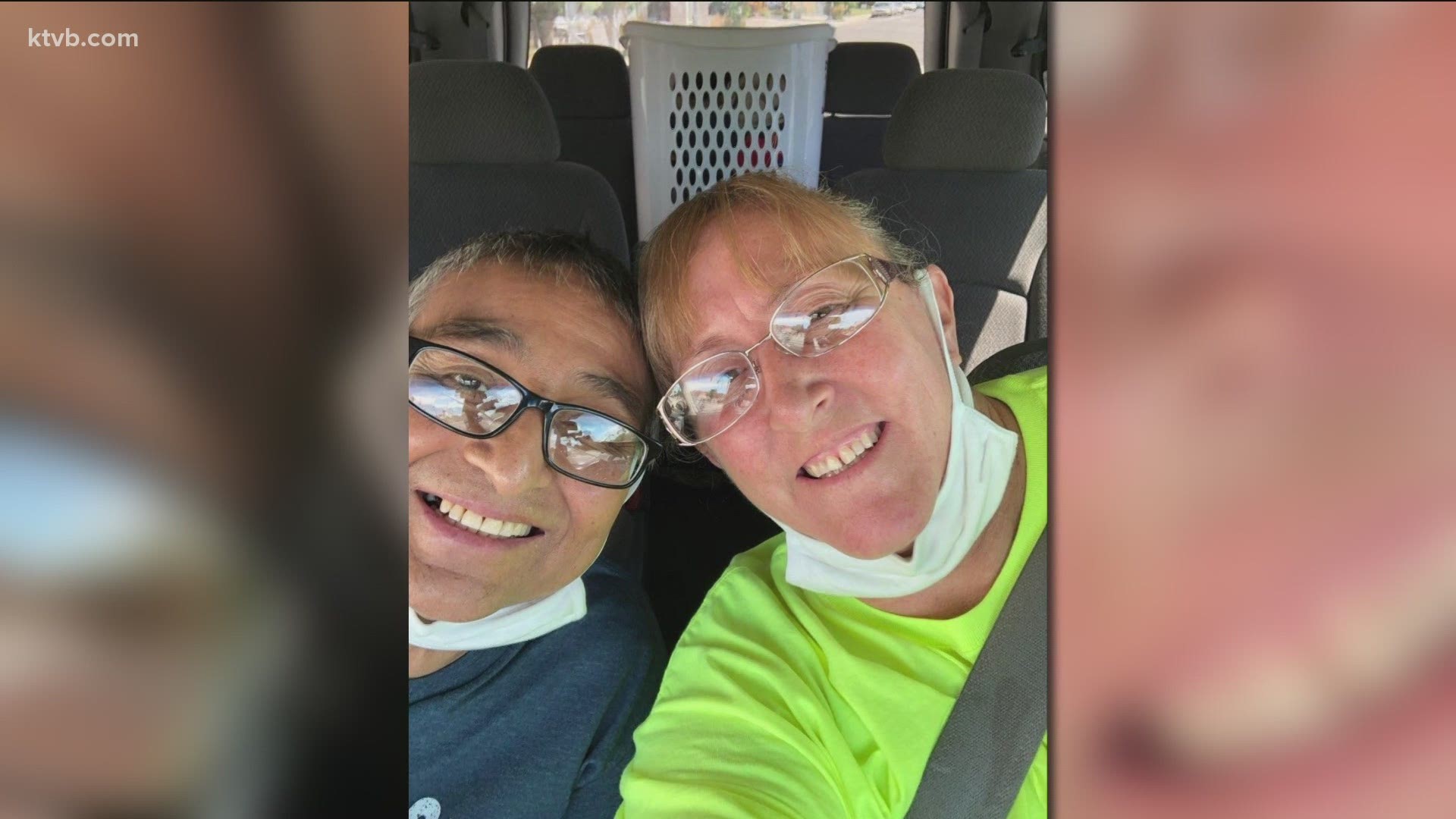BOISE, Idaho — Every year, nearly 48,000 people wait patiently to receive an organ they need to survive, while only 9,000 organs become available in as many months.
For a Caldwell couple who waited three years for a liver, one of those 9,000 organs was gifted to them in the middle of a global pandemic.
Earlier this year, high school sweethearts Guadalupe and Brenda Vega were nearly torn apart by liver disease.
“I was walking on a thin line with my life," Guadalupe Vega said. "Some days I was feeling not great, next day I would be so down I couldn’t even move.”
“I think the hardest thing is just watching the person that you love the most just die, slowly," Brenda Vega said.
Guadalupe developed decompensating liver disease, in which his disease progressed more each day until he developed liver cancer, according to medical director of Intermountain Healthcare, Dr. Richard Gilroy.
For three and a half years, the Vegas waited and prayed that a liver would become available. Finally, their prayers were answered.
The couple traveled to Intermountain Medical Center in Salt Lake City for the procedure since Idaho does not offer any transplant programs.
On July 18, 2020, in the midst of the COVID-19 pandemic, Guadalupe Vega finally received a liver transplant. He said the liver transplant team at Intermountain gave him a second chance at life.
So far this year, Intermountain Health Services provided 62 liver transplants to people in need and are on track to do more than they have ever done, all while a global pandemic has taken over most of 2020.
“Other programs may not have adapted the way we did," Gilroy said. "So the organs that become available, that number is constant, if one program is not utilizing it, another program can.”
Intermountain Healthcare conducts all necessary checks to ensure the patient will receive a healthy liver, ensuring the donor did not have COVID-19 before they passed. The liver is also tested for the virus before surgery, which takes a few hours to provide results.
Even after all necessary checks, however, there are still risks for the patient.
“Even though COVID predominantly affects the lungs, the concern about cross-infection remains," Gilroy said. "I’m sure there will be isolated cases that will occur because unfortunately, COVID can be a silent disease.”
Thanks to Intermountain's partnership with St. Luke's, Saint Alphonsus and Idaho Digestive Health, patients can stay in the Treasure Valley for pre and post-surgery appointments.
“I’m enjoying life. I’m walking around now." Guadalupe Vega said. "Before I couldn’t even get up and walk my body was so sick and hurting, I couldn’t even move, but now I can walk around, actually go out and do functions with my family.”
Being an organ donor can save a life.
“Give and let live," Guadalupe Vega said. "The opportunities are in donors and if people talk about organ donation or consider organ donation they save lives.”
Watch more 'Local News'
See them all in our YouTube playlist:

